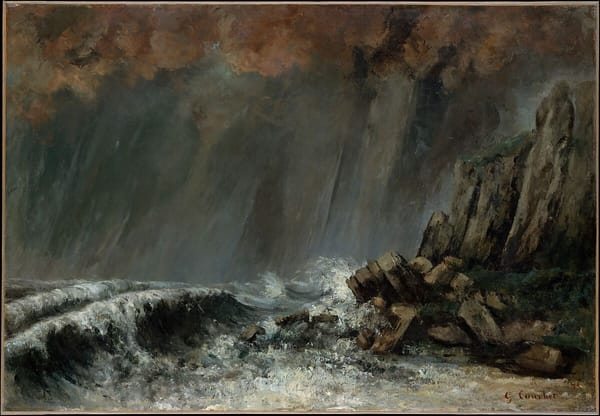If You're Gonna Be A Hater, See It Through to the End
true h8rs h8 till infinity (sideways 8)

💡
This is a daily standup post of the work put into maintaining bramadams.dev. Ex nihilo nihil fit.
Newsletter (Sundays)
no updates. today has been an effort in staying true to the ideas i laid out yesterday on deep leisure and reading a ton:
Graphs on Deep Leisure
time wasted -- perhaps not?

Software (Saturdays)
instead of having an actual back and forth with gpt, consider just asking it to simulate its own example conversation in an assistant:
...follow the previous run through an example convo simulating user and assistant given a starting message. consider alternate cases.
Books (5/month)
💡
links are affiliate! if you pick up a copy, i get a little kickback!
- Black Rednecks & White Liberals - 58%
- Command & Control - 23%
- At Home in the Universe - 36%
- Napoleon: A Life - 49%
- Glass Bead Game - 44%
- River of the Gods - (5/5⭐️)
- thought: speke found the nile, burton was in de-nile
- thought: spekes commitment to hating is legendary, and the cause of his downfall
- "When Burton’s translation of The Lusiads was finally released, Isabel feared that, like her brilliant if deeply flawed husband, it would never be understood. “If a thousand buy it, will a hundred read it, and will ten understand it?” she wondered. “To the unaesthetic, to non-poets, non-linguists, non-musicians, non-artists, Burton’s Lusiads will be an unknown land, an unknown tongue.”"
- "Burton, intimidated neither by the art nor the artist, did not hesitate. Isabel, who was with him in the studio, later explained that her husband “had learnt something of sculpting when a boy in Italy.” Taking Papworth’s sculpting pencil from his hand, he immediately set to work. “With a few touches here and there,” Isabel wrote, he “made a perfect likeness and expression.” Isabel, who had watched as her husband carved life into the bust of a man who had been both his intimate friend and greatest foe, would later memorialize the moment in a poem she titled “Who Last Wins.” A Moulded mask at my feet I found With the drawn-down mouth and the deepen’d eye, More lifeless still than the marbles round—Very death amid life’s mimicry"
- Replacing Guilt: Minding Our Way - 44% (+25%)
- "Guilt is the same way: if you find yourself regularly experiencing guilt, then you're using guilt incorrectly. Guilt works only when you wield it in such a way that it doesn't happen. Guilt is costly when deployed. Once activated, it's usually strongly demotivating, and can easily lead to failure spirals or vicious cycles of depression."
- "I would say that, if you keep finding yourself carrying out a threat, then you really need to consider whether or not your threats are really capable of steering the future in the way you hoped."
- "As a matter of fact, guilt and sunk cost fallacy are closely related: both are about suffering for costs that were paid in the past. The only difference is that guilt carries with it a lesson, an instruction to alter your environment and your mind so that similar actions don't occur in the future. With practice, it is possible to reflexively treat the initial gut-wrenching guilt as an instruction to update your behavioral patterns, and then dismiss the lingering guilt immediately."
- Coders at Work: Reflections on the Craft of Programming (new!) - 2%
- "Leaving aside the work of Ada Lovelace—the 19th century countess who devised algorithms for Charles Babbage's never-completed Analytical Engine—computer programming has existed as a human endeavor for less than one human lifetime: it has been only 68 years (~2008) since Konrad Zuse unveiled his Z3 electro-mechanical computer in 1941, the first working general-purpose computer. And it's been only 64 years since six women—Kay Antonelli, Jean Bartik, Betty Holberton, Marlyn Meltzer, Frances Spence, and Ruth Teitelbaum—were pulled from the ranks of the U.S. Army's “computer corps”, the women who computed ballistics tables by hand, to become the first programmers of ENIAC, the first general-purpose electronic computer."
- "There were, however, some common themes: almost everybody emphasized the importance of writing readable code; most of my subjects have found that the hardest bugs to track down are in concurrent code; and nobody seemed to think programming is a solved problem: most are still looking for a better way to write software, whether by finding ways to automatically analyze code, coming up with better ways for programmers to work together, or finding (or designing) better programming languages. And almost everyone seemed to think that ubiquitous multi-core CPUs are going to force some serious changes in the way software is written."
- Nefertiti (new!) - 8%
- "Our family was too close to the Pharaohs of Egypt to believe in their divinity the way the common people did, the way they were told to believe so they wouldn’t challenge their authority. My father explained it one night, and I was afraid that next he would tell us that Amun-Re was not real, either, but he never did that. There were things you believed in for convenience’s sake, and things too sacred to speak against."
- Permanent Midnight (new!) - 2%
- "The one time I set foot in Cedars when they didn’t want to chop off my arms at the shoulder blades—just to keep the needles out. Not that it would have helped. I would, if one-armed and jonesing, doubtless have found a way to cook up a hearty spoon of Mexican tar and slam it with my toes. (I met a double amputee in San Francisco whose girlfriend slapped a bra strap around his throat and geezed him in the neck. Another triumph of the human spirit. But slap me if I get sentimental…)"
- "The truth: This book, for me, is less an exercise in recall than an exorcism. And a schizophrenic exorcism at that. Opiates are, by their very nature, about forgetting. When you’re in that narcotic haze, memory functions like some mutant projector, a Hell-tuned Bell & Howell. As the film goes in one end, at the other it’s immediately eaten by some kind of acid, dissolving the second the events transpire. That was my life on drugs. Experience lived, more or less, then the soothing hiss of oblivion as instantly the moments are burned away… Banished."





